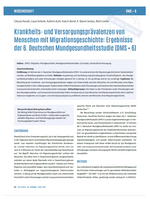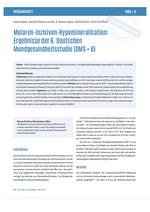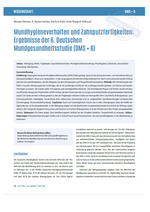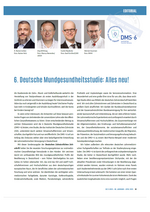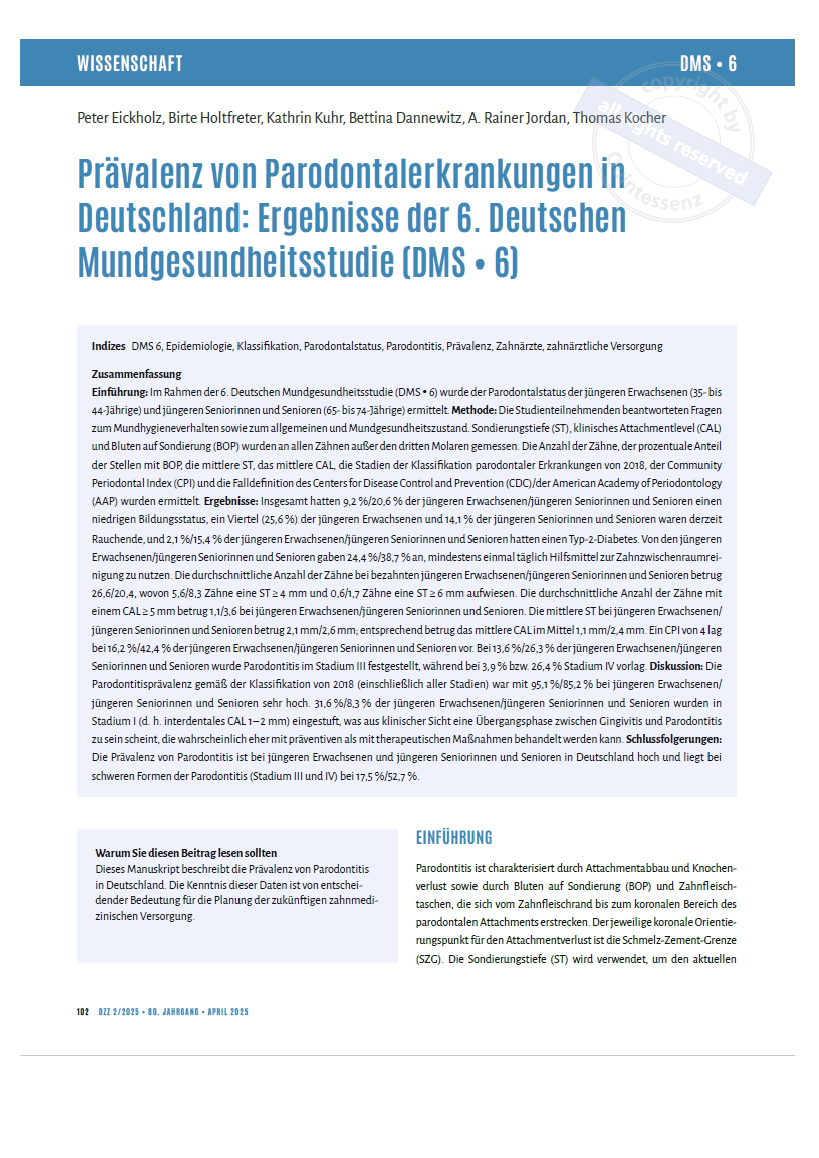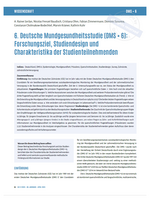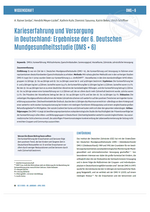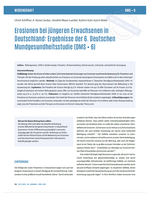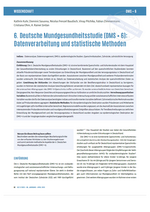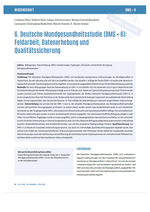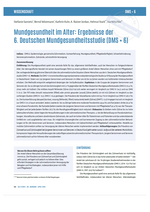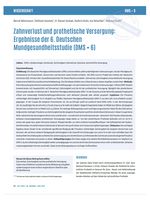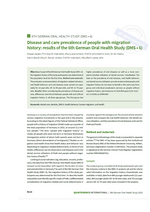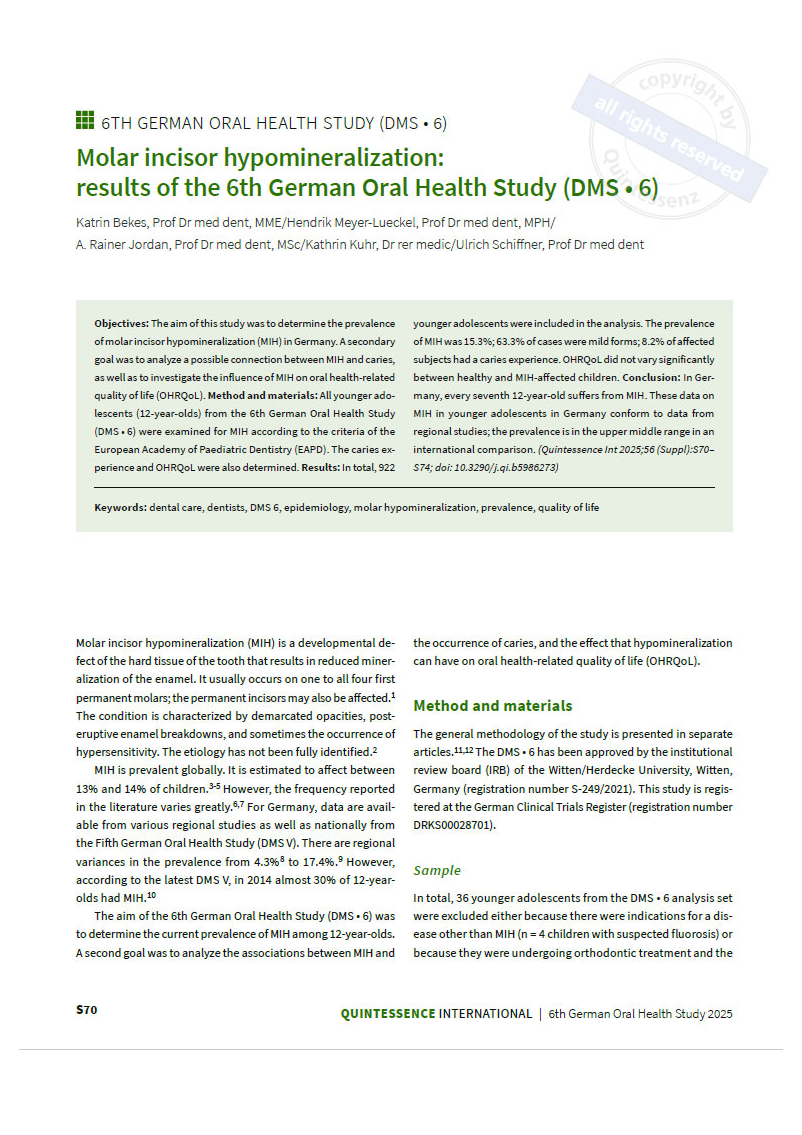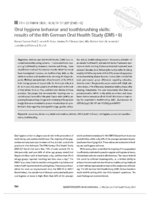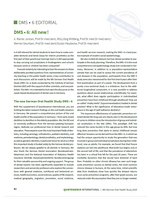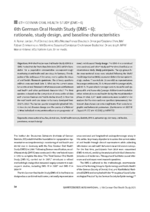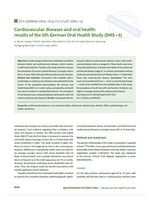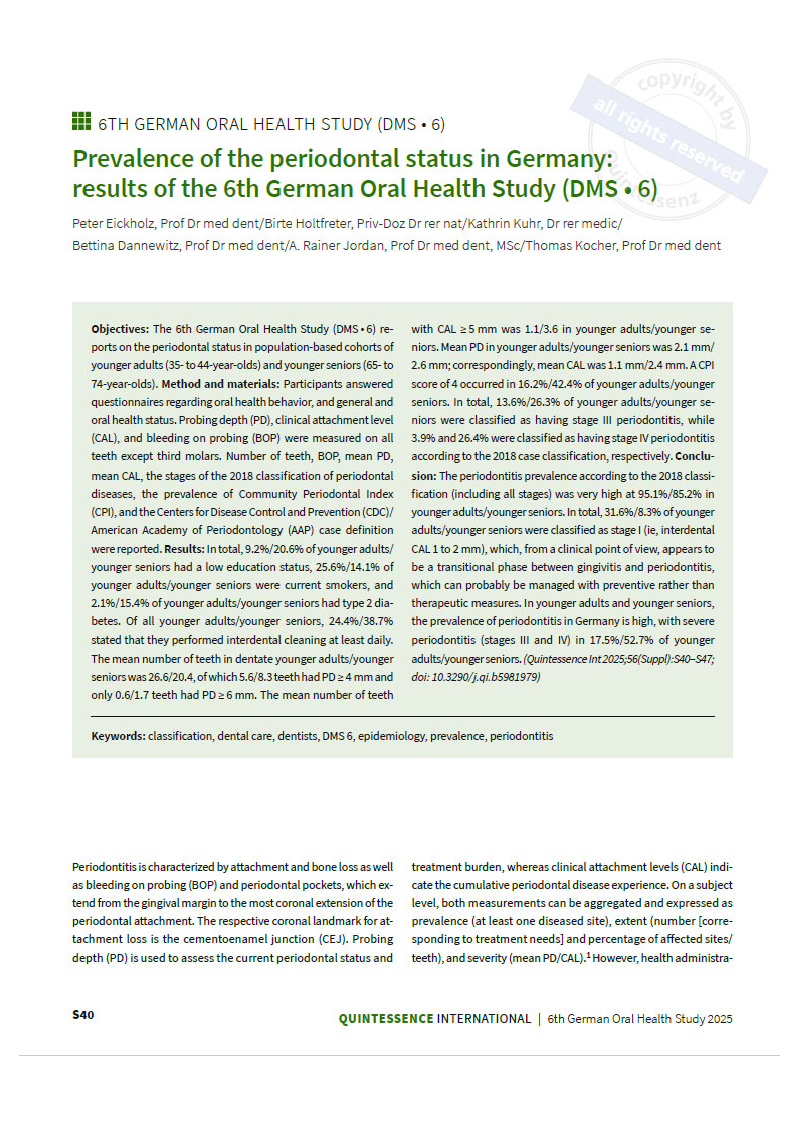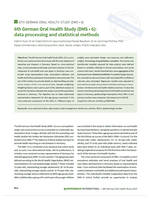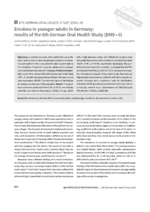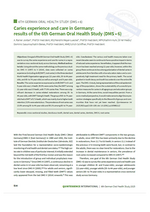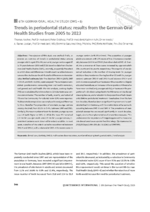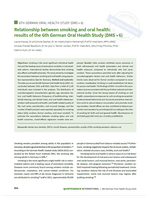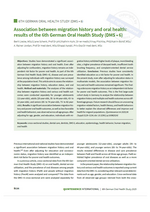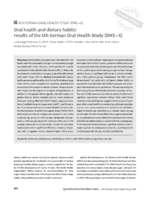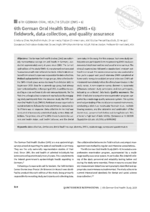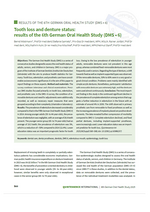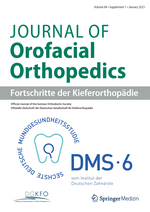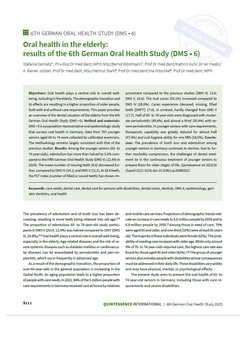
Deutsche Mundgesundheitsstudien
Autoren
Samietz, Stefanie
Wöstmann, Bernd
Kuhr, Kathrin
Jordan, A. Rainer
Stark, Helmut
Nitschke, Ina
Schlagwörter
Care needs
Dental care
Dental care for persons with disabilities
Dental caries
Dentists
DMS 6
Epidemiology
Geriatric dentistry
Oral health
Publikation — Zeitschriftenbeiträge
Titel
Oral health in the elderly: results of the 6th German Oral Health Study (DMS • 6)
Titel kurz
Quintessence Int
Titel Ausgeschrieben
Quintessence International
ISSN
1936-7163
Jahr
2025
Ausgabe
56 (Suppl.)
Seitenzahl
S112-S119
Erscheinungsdatum
17.03.2025
Oral health in the elderly: results of the 6th German Oral Health Study (DMS • 6)
Objectives: Oral health plays a central role in overall well-being, including in the elderly. The demographic transition and its effects are resulting in a higher proportion of older people, both with and without care requirements. This paper provides an overview of the dental situation of the elderly from the 6th German Oral Health Study (DMS • 6).
Method and materials: DMS • 6 is a population-representative oral epidemiologic study that surveys oral health in Germany. Data from 797 younger seniors aged 65 to 74 were collected by calibrated examiners. The methodology remains largely consistent with that of the previous studies.
Results: Among the younger seniors (65- to 74-year-olds), edentulism has more than halved to 5.0% compared to the Fifth German Oral Health Study (DMS V) (12.4% in 2014). The mean number of missing teeth (8.6) decreased further, compared to DMS IV (14.1) and DMS V (11.1). At 18.8 teeth, the FST Index (number of filled or sound teeth) has shown improvement compared to the previous studies (DMS IV, 13.6; DMS V, 16.4). The root caries (59.1%) increased compared to DMS IV (28.0%). Caries experience (decayed, missing, filled teeth [DMFT]: 17.6), in contrast, hardly changed from DMS V (17.7). Half of 65- to 74-year-olds were diagnosed with moderate periodontitis (49.4%) and almost a third (30.4%) with severe periodontitis. In younger seniors with care requirements, therapeutic capability was greatly reduced for almost half (47.4%) and oral hygiene ability for one fifth (18.5%).
Conclusion: The prevalence of tooth loss and edentulism among younger seniors in Germany continues to decline. Due to further morbidity compression, the challenges of dental treatment lie in the continuous treatment of younger seniors to prepare them for older stages of life.

